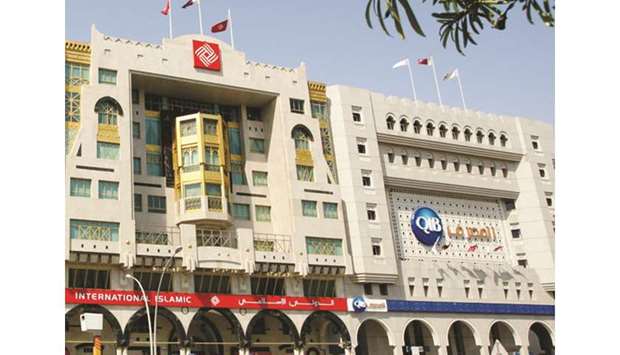The state of Qatar lists rank nine this year on the annually published Islamic Finance Country Index, showing considerable strength of its Islamic finance industry. The index, part of the Global Islamic Finance Report 2017 compiled by London-based Islamic finance consultant firm Edbiz Consulting, is the oldest and most respected index ranking different countries with regards to the state of Islamic banking and finance domestically and is benchmarked towards an international level. Launched in 2011 with 36 reviewed countries, the 2017 index meanwhile has a sample of 48 nations. The research of EdBiz is sponsored by Dubai Islamic Bank, Bank of Khartoum and the Islamic Corp for the Development of the Private Sector of the Islamic Development Bank Group.
Qatar’s ranking is testament to its solid Islamic finance industry which is built upon solely fully-fledged Islamic banks which do not operate Islamic windows. While this is an indicator for a high “purity” of Islamic finance in Qatar, the country has been surpassed in this year’s index by Bahrain and Pakistan which allow a more diluted Islamic finance system including Islamic windows at conventional banks and Islamic finance vehicles that wouldn’t pass Shariah approval in Qatar.
In addition, Pakistan, which leaped from rank nine to six, improved its score on account of a number of new enhancements of the existing processes in the Islamic finance sector, including skills training and qualification improvement initiatives, reforming regulatory frameworks and allowing certain tax exemptions, as well as the hosting of a number of reputable international Islamic finance conferences.
Altogether, the top five nations on the index were all stable and their rankings unchanged from the previous year. The country with the world’s strongest Islamic finance industry remains – unsurprisingly – Malaysia, followed by Iran, Saudi Arabia, UAE and Kuwait.
Malaysia ranks number one with the highest score of 79.25. This is the second year in a row that Malaysia has been in the top position, taking over from Iran in 2016. Malaysia, together with Iran and the UAE, slightly improved their scores while Saudi Arabia and Kuwait witnessed deterioration in their scores. Bangladesh rounds up the top ten, unchanged from 2016.
“In the list of 48 countries, there are 14 that saw a decrease in their scores. While some of them are countries with majority Muslim populations, the trend is more visible in the countries with Muslim minorities,” says Sofiza Azmi, Edbiz CEO and Editor-in-Chief for the Global Islamic Finance Report series.
“Among the 13 countries that improved their ranking, Tunisia took the biggest leap and improved its position from number 25 to 20. Another gainer, apart from Pakistan, was Kazakhstan, while among the countries that went down in the ranking, Syria suffered the most with a significant drop of six points for obvious reasons,” she added.
The top-five non-Muslim countries, namely the UK (rank 17), Sri Lanka (18) US (19), Kenya (21) and Nigeria (23) ranked comparably well. Other non-Muslim majority countries with a strong Islamic finance industries on this year’s ranking include Singapore, Switzerland, South Africa, Canada, Thailand and Australia, among others, while the country with the weakest developed Islamic finance industry and bottom-placed on the ranking remains Morocco, a Muslim nation which, however, is now in the process of introducing Islamic finance frameworks.
With regards to the methodology, the creation of the index is based on complex algorithms that allow the comparison of countries with different macro-and microeconomic factors. Variables taken into account were the number of Islamic financial institutions in a country, total Islamic finance assets, growth of the latter, Shariah supervisory regimes, size of Muslim population, GDP per capita, human development index and others, as well as soft factors such as education and culture.
With eight editions, the Islamic Finance Country Index has emerged as a reliable indicator of developments in the global Islamic financial services industry, particularly because it also factors in Iran, which is a major player in the Islamic finance industry but has been sidelined in the past by most reports on the global Islamic finance industry because Iran’s banking sector used to be secluded from the rest of the world due to sanctions.
The report concludes that the ranking suggests that countries with large Muslim populations are the future frontiers for growth in Islamic banking and finance and, therefore, it would be absolutely imperative for Islamic banking institutions based in the Middle East and Southeast Asia to expand their businesses into these countries with growth potential.

Qatar’s ranking is testament to its solid Islamic finance industry which is built upon solely fully-fledged Islamic banks which do not operate Islamic windows, an indicator for a high u201cpurityu201d of Islamic finance in Qatar. PICTURE: Nasar TK


